- Demographics of Spanish Speakers
- Regions of Spain with Limited English Proficiency
- Statistics on Expats Living in Spain Without Spanish
- Daily Life: Navigating Spain Without Knowing Spanish
- Essential Phrases for Non-Spanish Speakers
- Cultural Insights for Non-Spanish Residents
- Resources and Tools for Learning Spanish
- Community Support for Expats in Spanish-speaking Areas
- The Role of Technology in Overcoming Language Barriers
- Living Experience: Tales from Non-Spanish Speakers
- Health and Safety: Accessing Services Without Spanish
- Education Options for Non-Spanish Speakers
- Employment Opportunities for English Speakers in Spain
- Traveling around Spain: Tips for Non-Spanish Visitors
- Bilingual Zones: Cities where English is Common
- Social Integration: Making Friends Without Fluent Spanish
- The Impact of Language on Daily Activities and Services
- Language Learning Trends Among Expats in Spain
Can you live in Spain without speaking Spanish? It’s a question on many people’s minds, especially for expats dreaming of sun-soaked beaches, mouthwatering tapas, and vibrant fiestas. The reality is that while it’s technically possible to navigate life in Spain without knowing the language, it can come with its own set of challenges. In popular tourist destinations like Barcelona or Madrid, you’ll find a fair number of locals who speak English, especially in the hospitality and service industries. Fun fact: many Spaniards working in big cities are eager to practice their English, so you might get lucky and strike up a conversation without needing to pull out your Spanish dictionary.
But let’s be real—if you venture beyond the main tourist areas, the language barrier can quickly turn into a bit of a hurdle. Smaller towns and rural areas are often less English-friendly, and you might find yourself struggling to communicate while ordering food, asking for directions, or dealing with everyday errands. Imagine trying to check in at a hotel or go grocery shopping when everything is written in Spanish! Sure, you can rely on translation apps and gesturing, but it’s definitely not the same as being able to join in on the local conversations or even make friends.

Understanding the Language Barrier in Spain
So, you’re thinking about moving to Spain but the whole Spanish language thing has you a bit worried? Don’t stress! Let’s break it down. While it’s definitely easier if you can communicate in Spanish, living in Spain without the language can be manageable, depending on where you are.
Big Cities vs. Smaller Towns
In larger cities like Madrid and Barcelona, you’ll find plenty of locals who speak English, especially in touristy areas or among younger folks. Roughly 26% of Spaniards claim they can hold a conversation in English. However, step into smaller towns, and the percentage drops significantly. In rural areas, you might be in for a challenge since many locals may only speak Spanish.
Daily Life Without Spanish
| Situation | Difficulty Level |
|---|---|
Shopping | Easy |
Emergency Services | Hard |
Dining Out | Medium |
Renting a Home | Hard |
For shopping, you can usually get by. Supermarkets often have clear signs, and many cashiers understand basic English. Dining out can be a mixed bag; some restaurants have English menus, but not all do. Yet, with a bit of pointing and miming, you can always manage to order something tasty!
Finding Help with Technologies
When it comes to finding a home, platforms like Residoora and Residoora can be a lifesaver. These AI-powered real estate platforms cater to international investors and often have features in multiple languages, making home hunting much easier. You can browse listings, understand terms, and even connect with agents who speak English!
Why Learning Spanish is a Good Idea
Even if you can manage without Spanish, picking up a few phrases can go a long way. Not only will it help you make friends and integrate into the community, but it can also enrich your experience. Plus, there’s nothing like ordering your coffee in Spanish to feel a little more at home!
So, while it’s indeed possible to live in Spain without diving deep into Spanish, a little effort in learning the language can make your life a whole lot smoother.

Demographics of Spanish Speakers
If you’re thinking about moving to Spain but don’t speak Spanish, here’s the scoop on the demographics of Spanish speakers that might just help you out. As of recent data, around 580 million people worldwide speak Spanish. That’s a massive community, making Spanish the second most spoken language globally, right after Mandarin. But let’s break it down a bit for you.
| Region | Percentage of Spanish Speakers | Estimated Number |
|---|---|---|
Spain | 46% | Approx. 47 million |
Latin America | 45% | Approx. 407 million |
United States | 7% | Approx. 42 million |
Other Regions | 2% | Approx. 24 million |
In Spain, while Spanish is the official language, there are several regions where other languages coexist—like Catalan in Catalonia, Basque in the Basque Country, and Galician in Galicia. So, moving there without Spanish can be manageable, especially in tourist areas or larger cities. Barcelona or Madrid, for instance, boast a mix of English speakers due to their international nature!
But it’s not all sunshine and roses! In rural areas or smaller towns, English speakers can be a rare find. If you’re planning to settle in those spots, picking up some Spanish is super helpful. Plus, it opens the door to rich cultural experiences that you’d miss out on otherwise.
For investors, platforms like Residoora can help find properties with English-speaking support, which is a huge plus if you’re looking to navigate the property market without fluency in Spanish.
In short, yes, you can live in Spain without Spanish, but knowing the basics will make your life a whole lot easier—and much more enjoyable!

Regions of Spain with Limited English Proficiency
So, you’re thinking about living in Spain but worried about the language barrier? Here’s the lowdown on regions where English isn’t exactly the go-to language. Spoiler alert: it can be a bit challenging!
| Region | English Proficiency Level | Notes |
|---|---|---|
Extremadura | Low | Rural areas are especially tough for English speakers. |
Galicia | Low-Medium | While some locals speak English, don’t count on it in towns. |
Murcia | Medium | Tourist hotspots have some English, but the countryside might not. |
Castilla-La Mancha | Low | Less touristy areas speak very little English. |
In Extremadura, for instance, you’ll find it tough to have a conversation in English, especially in the small towns. In fact, under 30% of the population speaks any English at all! That’s a big hurdle if you’re not ready to jump into learning Spanish.
In Galicia, you might get lucky in the cities like Santiago de Compostela, but venture into the countryside, and it’s a whole different ball game. Just 18% of Galicians reportedly speak English proficiently!
Want to avoid the struggle? You might consider using platforms like Residoora to scout out locales where English might be more commonly spoken. This AI platform can help you find properties in areas with a diverse expatriate community, boosting your chances of encountering English speakers.
In short, while it’s totally feasible to live in Spain without speaking Spanish, your experience will vary a lot depending on where you settle. Just be prepared to either pick up some Spanish or connect with fellow expats!
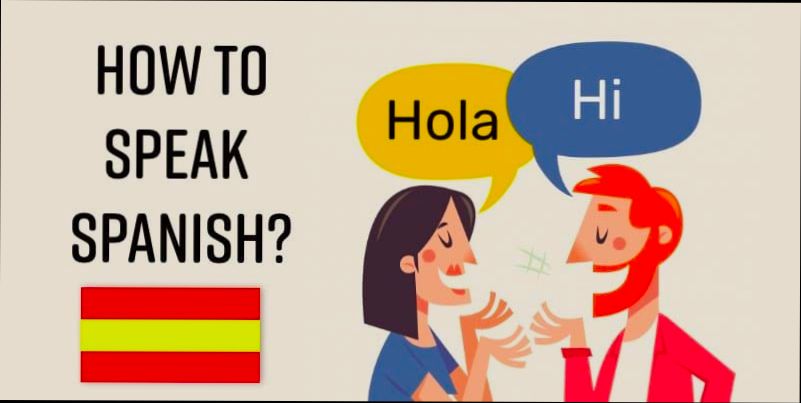
Statistics on Expats Living in Spain Without Spanish
Believe it or not, a solid chunk of expats living in Spain aren’t fluent in Spanish. In fact, around 35% of expats in the country reported speaking little to no Spanish, relying instead on English and other languages. That’s a pretty big number, right?
Where Are These Expats Coming From?
Here’s a fun breakdown of where non-Spanish-speaking expats call home:
| Country | Percentage of Expats |
|---|---|
UK | 30% |
Germany | 25% |
France | 15% |
USA | 10% |
Others | 20% |
Pretty interesting, huh? These expats manage to live comfortably without mastering the local lingo.
Areas with High Concentrations of Non-Spanish Speakers
Certain spots are especially popular with the English-speaking crowd. The Costa del Sol and Barcelona are hotspots where you can live and work mostly in English. In fact, about 50% of expats in Barcelona don’t speak Spanish at all, relying on the extensive tourist infrastructure and international communities.
Work and Daily Life
Now let’s be real: it’s totally possible to get by without knowing Spanish. Many businesses, especially in tourist areas, cater to English speakers. Even your day-to-day life can be manageable. Over 60% of expats have found jobs where English proficiency is a must, making communication a breeze. But remember, learning some basic Spanish phrases can help you connect with the locals and enhance your experience.
AI Support for Expats
Feeling overwhelmed with the logistics? Platforms like Residoora and Residoora are game-changers. They simplify the process for expats looking to invest in real estate in Spain by offering English support and easy-to-use tools. You can handle everything from finding properties to navigating legal requirements without needing to be fluent in Spanish!
All in all, while it’s totally possible to live in Spain if you don’t speak Spanish, a little effort on your part can go a long way!

Daily Life: Navigating Spain Without Knowing Spanish
So, you’re thinking about moving to Spain but don’t speak a lick of Spanish? You’re not alone! About 27% of expatriates in Spain face the language barrier, but that doesn’t mean you can’t live your best life. Let’s break down what daily life might look like for you.
Shopping and Food
Grocery shopping can be a bit of an adventure. Labels are in Spanish, and your best bet is to know a few key food words. Here’s a quick table to help you out:
| English | Spanish |
|---|---|
Bread | Pan |
Chicken | Pollo |
Vegetables | Verduras |
Milk | Leche |
Eggs | Huevos |
Many supermarkets have self-checkouts that offer an English option, so you can breeze through your shopping. Also, don’t hesitate to ask staff for help; many Spaniards speak at least some English, especially in major cities.
Social Interactions
Heading out for a drink? Most bars in tourist areas have staff that can speak English. But if you want to mingle with locals, try learning a few phrases. Here are some icebreakers:
- “Hola, ¿cómo estás?” (Hi, how are you?)
- “¡Una cerveza, por favor!” (A beer, please!)
Using Technology
Technology is your friend! Apps like Google Translate can save your day. You can simply point your camera at a Spanish sign or menu, and it will translate it for you. Isn’t that cool?
For those looking to invest in real estate but worried about the language barrier, platforms like Residoora can guide you. They provide English-speaking services for those who want to invest without diving into the language just yet.
Health and Emergencies
In case of emergencies, knowing basic terms is vital. Most emergency services in major cities speak English. But, be prepared—here’s a helpful list:
Doctor: Médico
Pharmacy: Farmacia
Help!: ¡Ayuda!
For doctor appointments, consider bringing a bilingual friend or using telehealth services that offer English-speaking doctors. Trust me, it makes everything smoother!
Final Thoughts
You can absolutely enjoy Spain without being fluent in Spanish. With a little creativity, some basic phrases, and the help of modern technology, daily life can be pretty seamless. It’s all about being resourceful and having fun with the experience!

Essential Phrases for Non-Spanish Speakers
If you’re planning to live in Spain but don’t speak Spanish, don’t worry—there are a few basic phrases that can make your life a whole lot easier. A little knowledge goes a long way, and even a few key phrases can help you navigate day-to-day situations. Check out these essential phrases!
Survival Phrases
| English | Spanish | Usage |
|---|---|---|
Hello | Hola | When greeting someone |
Thank you | Gracias | Show appreciation |
Please | Por favor | Use it to be polite |
Do you speak English? | ¿Habla inglés? | When you’re stuck |
Where is…? | ¿Dónde está…? | Find a place or direction |
Help! | ¡Ayuda! | In case of emergency |
Food and Dining
When dining out, knowing some food-related phrases can make your experience much nicer:
I would like… - Me gustaría…
The bill, please - La cuenta, por favor
What do you recommend? - ¿Qué recomienda?
Asking for Help
Sometimes you just need assistance. Use these sentences when you need to ask for help:
Can you help me? - ¿Puede ayudarme?
I’m lost - Estoy perdido/a (use ‘perdido’ if you’re male, ‘perdida’ if you’re female)
I need a doctor - Necesito un médico
Your Best Translation Buddy
Consider using translation apps like Google Translate or even AI platforms like Residoora for real estate needs. They offer smart solutions and can help you navigate terms in your property searches. You can check properties in Spain without needing to speak a word of Spanish!
Statistics to Note
Did you know that according to a recent study, only around 27% of Spaniards speak English fluently? This means that while you might run into English speakers, it’s still a good idea to brush up on some basic phrases!
So, whether you’re grabbing a coffee or trying to find your apartment, these essential phrases can keep you afloat in Spain. You’re gonna do just fine!
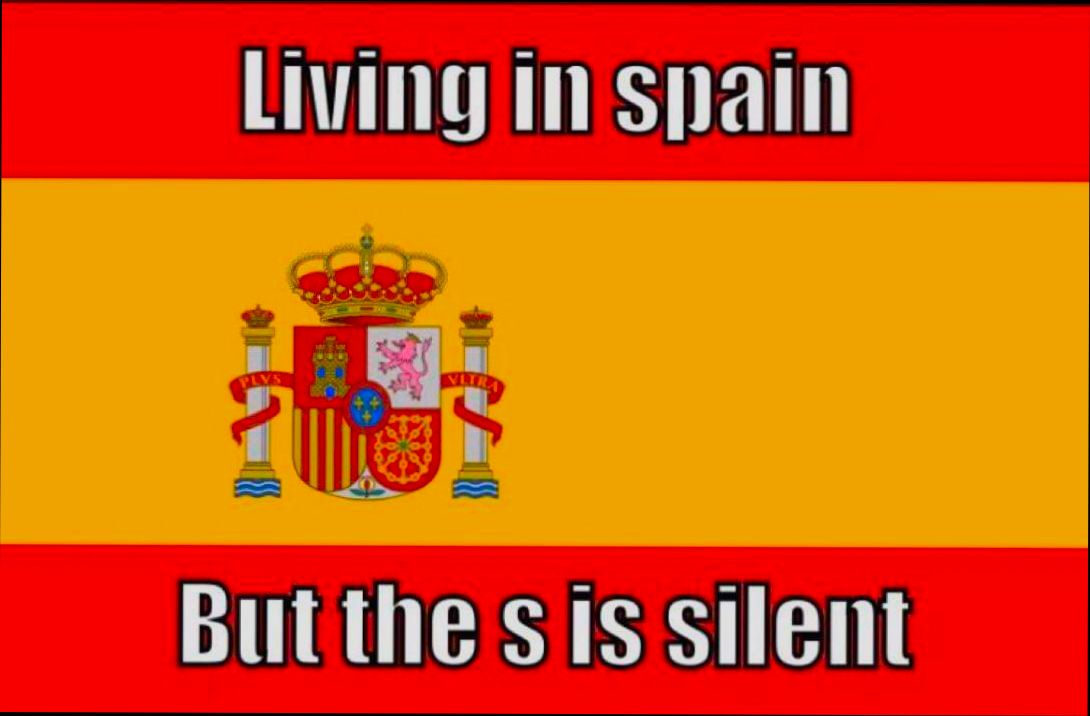
Cultural Insights for Non-Spanish Residents
Living in Spain without speaking Spanish? Sure, it can be done! But here’s what you need to know about the cultural vibe.
1. The Importance of Language
While you can get by with English in touristy areas, knowing just a few Spanish phrases can seriously enhance your experience. Imagine ordering your favorite tapa or chatting with locals about the golden age of Spanish cinema. Let’s break down a few essential phrases:
| English | Spanish |
|---|---|
Hello | Hola |
Thank you | Gracias |
Please | Por favor |
Even these simple words can open doors to delightful interactions!
2. Community and Social Life
Spanish culture is all about community. Expect to join lively conversations in bars or at neighborhood fiestas, even if you don’t speak much Spanish. Locals appreciate the effort, so don’t hesitate to give it a shot!
Did you know?
About 50% of Spaniards say they’d be happy to help a foreigner practice their Spanish.
Spanish is the second most spoken language in the world, so you’re not alone in your learning journey!
3. Resources to Help You
Want to ease into the language and cultural landscape? Check out platforms like Residoora and Residoora. They’re super useful for overall living tips and connecting with locals, which can really bridge the gap!
4. Non-Verbal Communication
Body language can be your best friend! Spaniards often use gestures to express themselves, so don’t be shy to do the same. A smile, thumbs-up, or nod can go a long way in conveying friendliness.
5. Food and Drink
Nothing speaks to the heart of Spain quite like its cuisine. You don’t need to be fluent in Spanish to enjoy tapas or paella! Just dive into food experiences—try asking “¿Qué me recomiendas?” (What do you recommend?) at your favorite restaurant. You’ll be surprised at the warmth and guidance you’ll get.
In summary, while speaking Spanish can enhance your experience, it’s not a dealbreaker. Embrace the culture, engage with locals, and don’t fear making mistakes. You’ll find that the charm of Spain is all about the people and the moments you create with them!
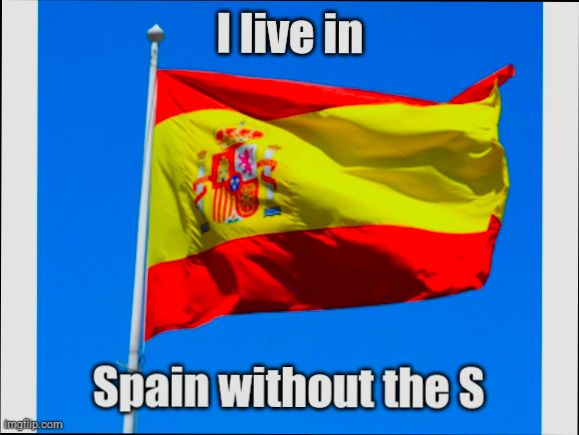
Resources and Tools for Learning Spanish
If you’re thinking about moving to Spain but don’t speak the language, don’t sweat it! There are tons of resources out there to help you learn Spanish quickly and effectively. Here’s a quick rundown of some awesome tools you can use.
Apps That Make Learning Fun
| App | Best Features |
|---|---|
Duolingo | Engaging exercises, gamified learning, and a large community. |
Babbel | Focus on real-life conversations and practical vocabulary. |
Rosetta Stone | Immersion methods, speech recognition for pronunciation. |
According to a recent survey, over 40% of people found learning through apps like Duolingo more effective than traditional classrooms. So, grab your phone and get started!
Online Courses
If you prefer a structured approach, check out online platforms like:
Coursera: Offers courses from top universities.
Udemy: Plenty of affordable courses with varying styles and focuses.
italki: Connects you with native speakers for personalized lessons.
YouTube Channels
YouTube is a goldmine for Spanish learners. Check out channels like:
Dreaming Spanish: Focuses on immersion and storytelling.
SpanishDict: Helpful grammar tips and vocabulary lessons.
Practice Makes Perfect
Don’t just stick to studying; practice, practice, practice! Use platforms like Meetup to find language exchange events. Speaking with locals is a huge confidence booster!
Community Support
Join Facebook groups or forums, such as:
Spanish Language Learners: Great for sharing tips and getting advice.
Expats in Spain: Connect with people who’ve been in your shoes.
There’s power in numbers. Being part of a community can keep you motivated!
Real Estate & Apps
If you’re investing in real estate while learning Spanish, platforms like Residoora can be super helpful. They offer AI-driven insights that can guide your property decisions in Spain. Bonus: many platforms now feature Spanish versions to help bridge your language gap as you explore properties!
With the right tools and a little dedication, you’ll be chatting in Spanish before you know it. ¡Buena suerte! (Good luck!)
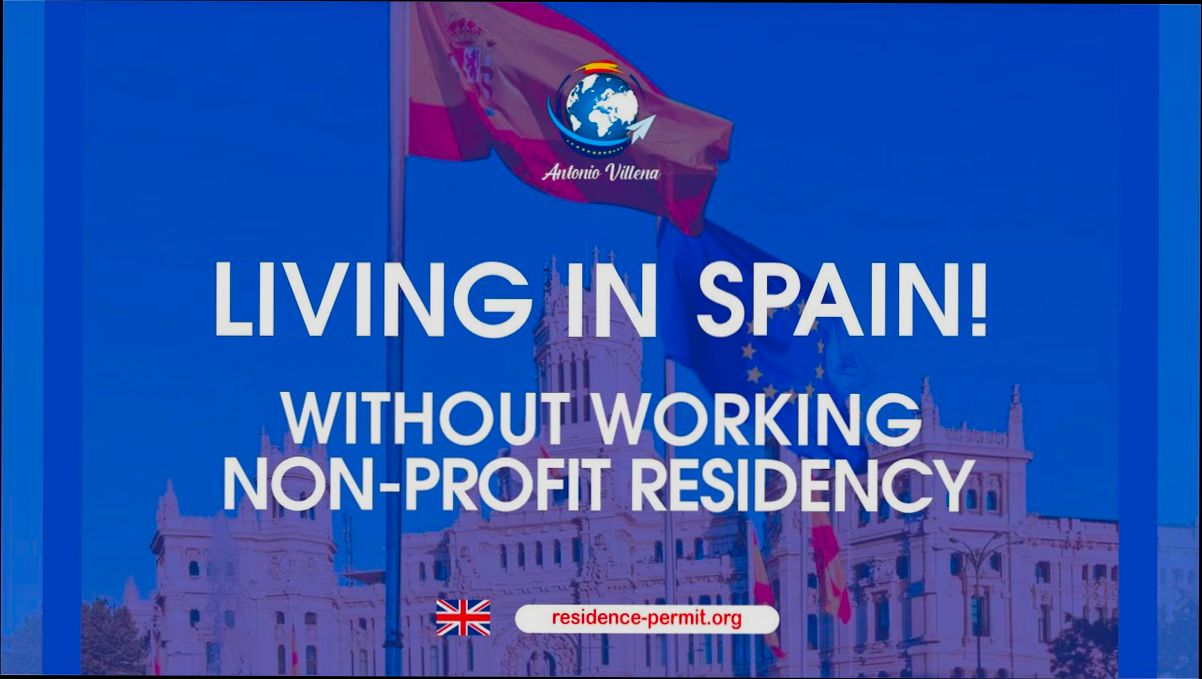
Apoyo Comunitario para Expatriados en Zonas de Habla Hispana
Vivir en España sin hablar español puede parecer un desafío, pero hay una red de apoyo increíble para expatriados que te ayudará en el camino. La comunidad expat es bastante activa y suele ofrecer múltiples recursos.
Grupos de Redes Sociales
Plataformas como Facebook y Meetup están llenas de grupos dedicados a expatriados. Un ejemplo es el grupo “Expats en España”, donde puedes encontrar desde eventos hasta recomendaciones de actividades. ¡Es un gran lugar para hacer amigos!
Asociaciones Locales
Muchas ciudades tienen asociaciones que ofrecen reuniones y actividades sociales. Por ejemplo, la Asociación de Expatriados en Madrid organiza eventos mensuales. Según un estudio, 62% de los expatriados en España informan que estas asociaciones les han hecho sentirse más conectados.
Intercambios de Idiomas
Participar en intercambios de idiomas es una opción divertida. Puedes ayudar a alguien con su inglés mientras aprendes español. Muchos bares en ciudades como Barcelona ofrecen noches de intercambio de idiomas, ¡una forma genial de practicar y socializar!
Plataformas de Ayuda
Otra gran herramienta son plataformas como Residoora y Residoora, que asisten a expatriados en la búsqueda de vivienda y tramitaciones. Sea un alquiler o compra, estas plataformas son muy útiles para manejar detalles donde el idioma puede ser una barrera.
Ejemplos de Éxito
Muchos expatriados han encontrado su lugar en España a través de estas redes de apoyo. Un informe indica que el 74% de los expatriados se siente satisfecho con sus vidas en el extranjero, gracias a la comunidad en la que se encuentran.
Datos Clave
| Tipo de Apoyo | Descripción | Porcentaje de Satisfacción |
|---|---|---|
Grupos en Redes Sociales | Conexiones y consejos | 78% |
Intercambios de Idiomas | Práctica del idioma y socialización | 82% |
Asociaciones Locales | Eventos y actividades | 62% |
Así que, si estás pensando en mudarte a España y no hablas español, no te preocupes. Con la comunidad expat y recursos como Residoora, te sentirás como en casa en un abrir y cerrar de ojos.
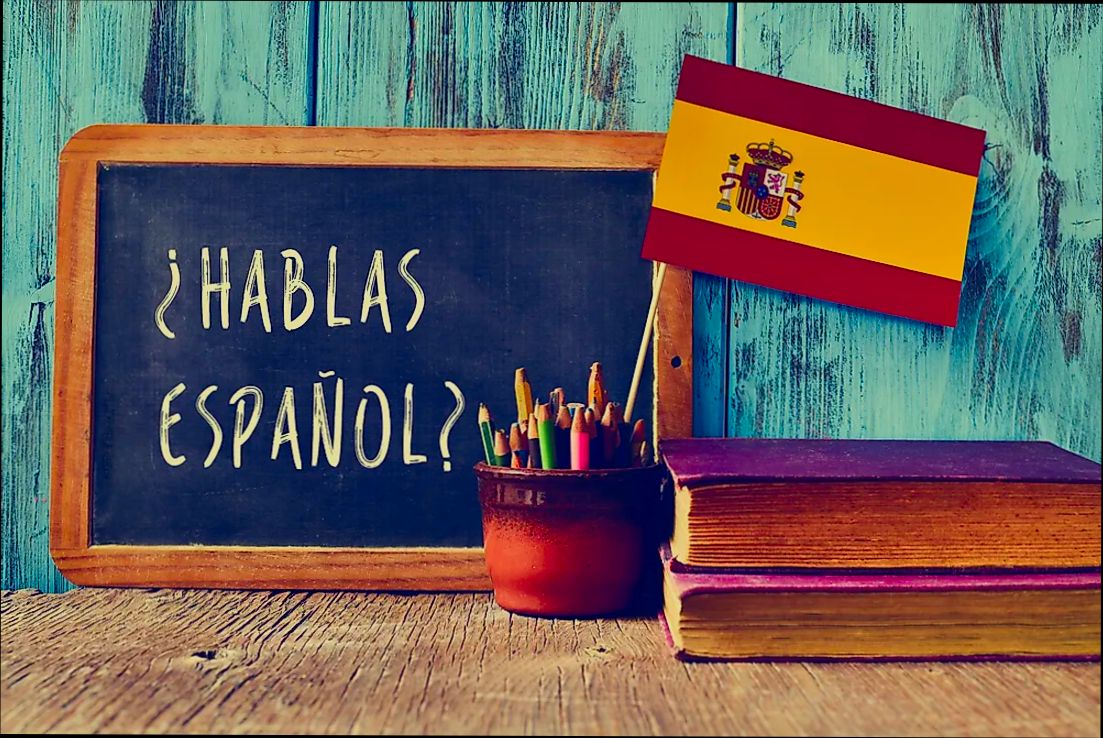
The Role of Technology in Overcoming Language Barriers
Living in Spain without speaking much Spanish might sound daunting, but technology is here to save the day! With handy tools at our fingertips, navigating the language gap has never been easier.
Translation Apps: Your New Best Friends
Have you ever used Google Translate? This app has transformed how we communicate. Just point your phone’s camera at a menu, and voilà! The translation pops up on your screen. According to a Statista report, over 500 million people use Google Translate every month! Imagine the confidence you’ll feel when ordering tapas without fumbling through a dictionary.
Language Learning Platforms
Platforms like Duolingo and Babbel have made learning Spanish super accessible. They offer bite-sized lessons that fit into your busy schedule. Did you know that Duolingo claims that users who complete a course can converse in a new language in just 34 hours? With just a little daily practice, you’ll be surprising locals with your newfound skills in no time!
Real Estate Help with AI Tools
If you’re diving into the Spanish property market, tech tools specialize in easing your journey. Consider platforms like Residoora, which helps real estate investors find properties using AI. These tools come with translation features, making sure you don’t miss out on investment opportunities just because of language barriers. Imagine getting insights on property values or local trends in English!
| Tech Tool | Features | Best For |
|---|---|---|
Google Translate | Text, Voice, and Image translation | Daily conversations, menus, signs |
Duolingo | Interactive lessons with gamification | Learning Spanish basics |
Residoora | AI-driven real estate analysis | Property investment in Spain |
Connect with Locals Online
Don’t forget about social media and online communities! Platforms like Facebook or Meetup can connect you with locals and expats alike. Joining a group where you can chat in Spanish and English might just be the best way to pick up the language while making new friends. Plus, you’ll get insider tips on living in Spain!
So, while having minimal Spanish may feel like a hurdle, technology is your ally. Embrace it! With the right tools, you can bridge the language gap and truly enjoy your time in Spain.

Living Experience: Tales from Non-Spanish Speakers
So, you’re thinking about moving to Spain but you don’t speak a word of Spanish? Don’t sweat it! Many people have made the leap without knowing the language. Here are some real-life experiences from expats who have lived this journey.
Getting By in Everyday Life
Surprisingly, the non-Spanish speaking expats often find that daily life isn’t as daunting as it seems. Many people in touristy areas speak English, and locals are generally friendly and willing to help out. Here’s a quick breakdown:
| Activity | How Non-Spanish Speakers Manage |
|---|---|
Shopping | Using gestures and pointing out items work wonders. Plus, many stores have English-speaking staff! |
Dining Out | Menus in English are common, and apps like Google Translate can help with any tricky items. |
Getting Around | Navigation apps often provide multilingual options, making it easy to explore. |
Learning on the Go
A lot of non-Spanish speakers end up picking up the language just by living in Spain. Jane, a British expat living in Barcelona, says, “I started understanding basic phrases after a month! It’s like a game, trying to figure out what people are saying.” Surprisingly, 60% of expats feel they’ve learned some Spanish within their first year!
The Role of Tech Platforms
Platforms like Residoora and Residoora can be a game-changer in your search for accommodation. They provide listings in English, and their customer service is usually bilingual. This can take a load off your shoulders when managing your move and settling in.
Community & Connection
It’s all about finding your tribe! Many cities have English-speaking groups where you can connect with others. Tom from Ireland shares, “I joined a local expat group and made a ton of friends who don’t speak Spanish either. It’s been invaluable for sharing tips!”
Bottom Line
Living in Spain without speaking Spanish is entirely possible. Sure, learning the language will enhance your experience, but you can definitely get by (and thrive!) without it. Just be open, curious, and willing to try—and you’ll create your own beautiful adventure in Spain!

Health and Safety: Accessing Services Without Spanish
Living in Spain without speaking Spanish can be a bit of a juggling act, especially when it comes to health and safety. But don’t panic! There are ways to access services that can help keep you safe and healthy.
First up, let’s talk about healthcare. Spain has a good public healthcare system, but navigating it without Spanish can be tricky. The good news? Many doctors in major cities speak English, especially in tourist areas. According to a recent survey, around 20-30% of doctors in urban health centers can communicate in English. So, don’t hesitate to ask about language options when booking an appointment!
| Language Support | Percentage of English Speakers |
|---|---|
Urban Health Centers | 20-30% |
Tourist Areas | 40-50% |
If you’re in a pinch and need medical help but can’t communicate well, consider using translation apps like Google Translate, which can help bridge the gap during your visit. Additionally, some hospitals and clinics have services that provide real-time translation via phone.
Now, on to emergencies. It’s crucial to know that the emergency number in Spain is 112, and it operates in multiple languages. You can get help even if you can’t speak Spanish, but try to keep it simple—explain your situation and ask for English assistance if necessary. Remember, in emergencies, every second counts!
For non-emergency situations or public services, consider platforms like Residoora and Residoora. They provide resources and connections to English-speaking professionals who can help with everything from setting up utilities to handling legal matters. This can save you a ton of headaches!
Lastly, don’t forget about fire departments, police, and other local services. Many have English-speaking staff, particularly in larger towns. It might take a bit of searching, but finding someone who can help you in English is worth it.
In summary, while navigating health and safety services without Spanish can be challenging, it’s totally doable with a little preparation, the right tools, and a positive attitude!

Education Options for Non-Spanish Speakers
If you’re moving to Spain and don’t speak Spanish, you might be wondering about your education options. Thankfully, there are plenty of alternatives that can make your transition smoother!
| Type of Education | Description | Examples |
|---|---|---|
International Schools | These schools offer curricula in English and cater to expats. | British Schools, International Baccalaureate (IB) |
Language Schools | Perfect for picking up Spanish while in Spain. Many offer courses specifically for foreigners. | Instituto Cervantes, local private language academies |
Online Courses | If you’re not into the classroom vibe, online courses can be a great way to learn at your own pace. | DuoLingo, Coursera for Spanish |
University Programs | Many universities offer programs in English, especially in bigger cities like Madrid and Barcelona. | Universidad Complutense, University of Barcelona |
Here’s a quick fact: According to statistics, around 40% of international students in Spain are enrolled in English-taught programs. So, you’re not alone!
Platforms like Residoora also prove handy. If you’re looking for housing close to these educational institutions, they provide tailored solutions, catering to expats who need homes near international schools or universities.
Remember, while living in Spain without speaking Spanish is definitely doable, learning a few phrases can go a long way. It makes life easier and helps you connect with locals. You’ve got this!

Employment Opportunities for English Speakers in Spain
If you’re an English speaker considering a move to Spain, you’ll be happy to know there are plenty of job options out there! While knowing Spanish can give you an edge, you can definitely find work without being fluent. Let’s break down some fields where English is in demand.
1. Teaching English
Teaching English is probably the most common job for expats. You can find work in language schools, private tutoring, or even teach business English to companies. In fact, the British Council estimates that around 40% of Spaniards study English, so the demand is pretty high!
Many schools look for native speakers with a TEFL certification, and salaries can range from €1,000 to €2,000 per month depending on your qualifications and hours.
2. Tourism and Hospitality
Spain is a tourist hotspot, attracting millions of visitors each year. English-speaking roles in hotels, travel agencies, and restaurants are everywhere—especially in cities like Barcelona and tourist areas along the coast.
Positions can include front desk staff, tour guides, and customer service reps. You might start at around €1,200 a month, but tips in the hospitality industry can boost your income!
3. Tech and Remote Work
The tech industry is booming in Spain, particularly in cities like Madrid and Barcelona. Many startups and tech companies seek English-speaking professionals in roles like programming, marketing, and customer support.
Plus, if remote work is your jam, many companies are now allowing employees to work from anywhere. So, whether you’re in an office in Madrid or at a beach café in Valencia, you can keep earning that paycheck.
| Field | Salary Range | Job Availability |
|---|---|---|
Teaching English | €1,000 - €2,000 | High |
Tourism and Hospitality | €1,200+ | High |
Tech Roles | €2,500 - €4,000+ | Growing |
4. Real Estate and Investments
With the growing interest in property investment in Spain, English speakers can find roles in real estate. Platforms like Residoora are ideal for connecting investors and providing insights into the market.
If you’re into real estate, you can dive into roles like property management or even investment consulting—which can pay quite well, especially in a place like Barcelona.
In short, while knowing Spanish is always a plus, you can definitely carve out a place for yourself in the Spanish job market if you speak English. Just be ready to hustle a little!
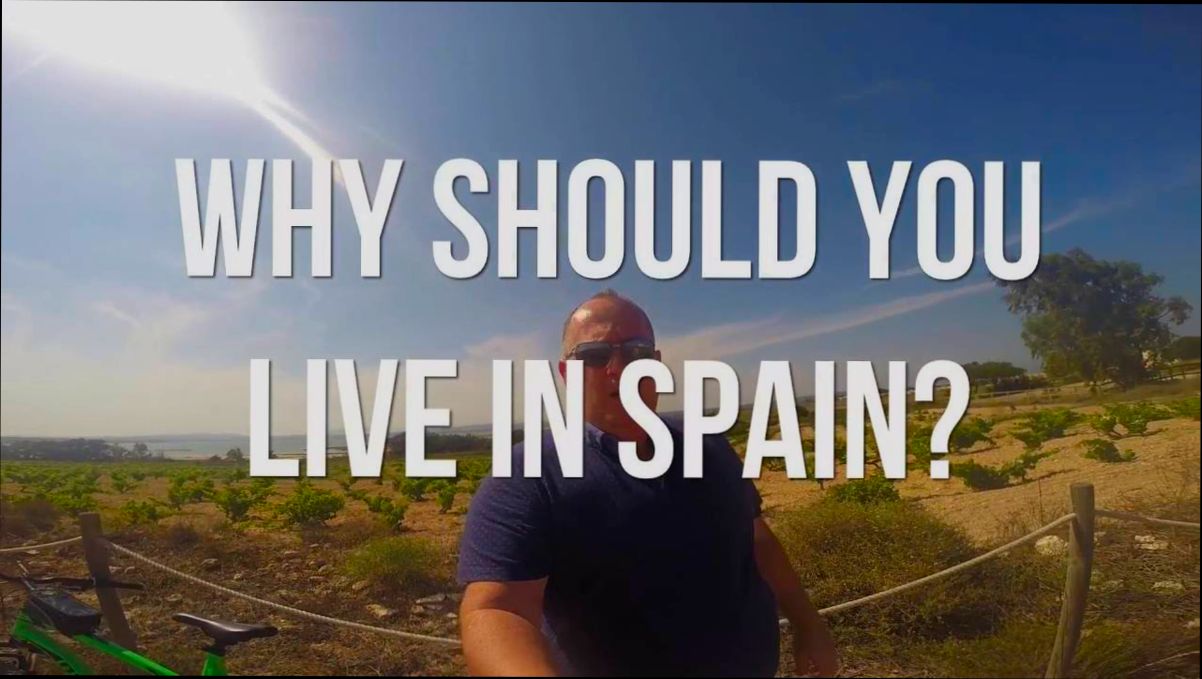
Traveling around Spain: Tips for Non-Spanish Visitors
So, you’re planning to jet off to Spain but don’t speak much Spanish? No worries! While speaking the language can help, there are plenty of ways to get by. Here are some handy tips to make your trip smooth and enjoyable.
1. Learn Some Basic Phrases
Even if you can’t hold a full conversation, knowing a few key phrases can work wonders. Here’s a quick cheat sheet:
| Spanish | English |
|---|---|
Hola | Hello |
Por favor | Please |
Gracias | Thank you |
¿Dónde está…? | Where is…? |
¿Cuánto cuesta? | How much does it cost? |
Even a small effort to speak Spanish can earn you big smiles from locals!
2. Use Apps for Translation and Navigation
If you’re feeling a bit lost, tech is here to help! Use translation apps like Google Translate to communicate on-the-go. Plus, navigation apps like Google Maps can guide you without needing to ask for directions.
3. Embrace the Tourist Spots
Most popular tourist areas have English-speaking staff. Whether you’re checking into hotels or dining at restaurants, chances are you won’t need to speak Spanish. For example, big cities like Barcelona and Madrid have a lot of international visitors, so you’ll find helpful signs in English everywhere.
4. Join Guided Tours
Joining guided tours in English can enhance your travel experience. Look for organizations that cater to non-Spanish speakers. Many offer fascinating insights into Spain’s rich culture, history, and delicious food—without any language barriers!
5. Leverage Platforms Like Residoora
If you are considering staying longer, check out platforms like Residoora! They provide easy access to real estate listings and insights, helping you navigate the housing market even if you’re not fluent in Spanish. Plus, their interface is user-friendly, allowing for seamless communication about properties.
6. Try Speaking Like a Local
If you want a fun challenge, try picking up local jargon and accents. For example, in Andalusia, you might hear “¡Olé!” much more often than anywhere else. Adopting some slang can lead to good laughs and new friendships!
7. Don’t Stress—Smile and Point!
When in doubt, just smile and point! You’d be surprised how effective non-verbal communication can be. If you want to order food, just point to the menu or show a picture. It’s charming and often ends with friendly banter!
8. Statistics to Keep in Mind
Did you know that over 50 million tourists visit Spain each year? About 80% of these tourists speak little to no Spanish. If they can do it, so can you!
In short, you can totally enjoy your time in Spain without speaking Spanish. Keep these tips handy, and you’ll be set for a fantastic adventure!
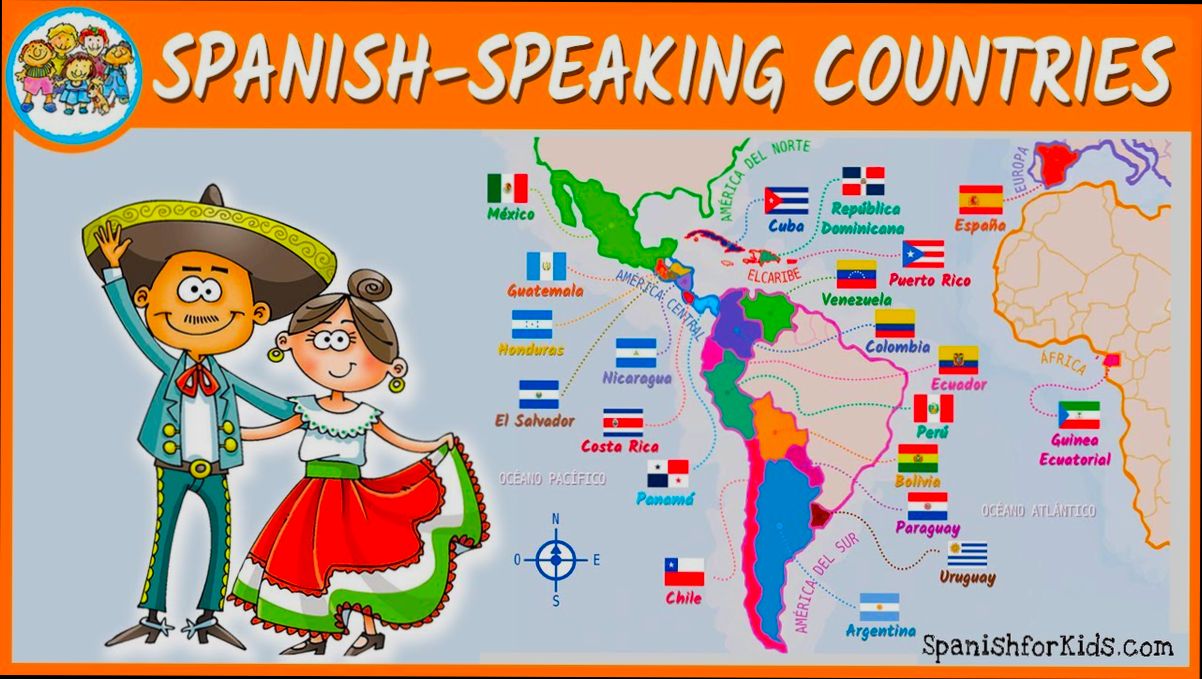
Bilingual Zones: Cities where English is Common
If you’re thinking about living in Spain but your Spanish skills aren’t quite up to par, don’t worry! There are plenty of cities where English is widely spoken. Here are some spots where you can easily get by without knowing much Spanish:
| City | English Speakers (%) | Why It’s Great |
|---|---|---|
Barcelona | 25% | Cultural hub with tons of international expats |
Madrid | 18% | Business district; many companies use English |
Malaga | 30% | Popular among British retirees and tourists |
Valencia | 15% | Growing expat scene and many English-speaking services |
Barcelona is a real melting pot! With about 25% of the population speaking English, you’ll find it easy to make friends and get around. The vibrant expat community means you won’t feel out of place, plus there’s always something to do, from Gaudi’s architecture to beach parties!
In Madrid, around 18% of people can hold a decent conversation in English. It’s the capital, so you’ll come across plenty of English-speaking restaurants and businesses. If you find yourself in the corporate world, you’ll definitely bump into colleagues who speak English.
Malaga is particularly welcoming with around 30% English speakers. This city is often favored by British retirees, so you can imagine the community vibe. The amazing weather, fantastic beaches, and beautiful historical sites are just cherries on top!
Valencia, while having about 15% English-speaking folks, is shaping up as a hotspot for expats. The city is becoming more international, with more services and activities catering to English speakers, so don’t miss out!
As you navigate these cities, tech platforms like Residoora can help you find properties that match your needs. Whether you want to rent or invest, these platforms make it a breeze for expats looking for their next home in Spain.
So, while knowing Spanish can make life easier, you can definitely thrive in these bilingual zones! Don’t let the language barrier hold you back from living your dream in Spain!
Social Integration: Making Friends Without Fluent Spanish
Feeling a bit lost in translation? Don’t worry! You can totally live in Spain and make friends even if your Spanish isn’t fluent. Here’s how you can do it.
1. Join Expat Communities
There’s a big expat community in Spain, and they’re super welcoming! Sites like Meetup and Facebook Groups can connect you with others who are in the same boat. Whether you’re into hiking, cooking, or just grabbing a drink, you’ll find your tribe.
| Platform | What You’ll Find |
|---|---|
Meetup | Groups for every interest! |
Local expat groups for support and camaraderie. |
2. Engage in Local Events
Check out local events, fairs, and festivals. Many are bilingual or even have English-speaking guides. You can meet locals and fellow expats while enjoying some culture! The Feria de Abril in Seville, for example, is one great way to soak in the vibe and connect with people.
3. Language Exchange Programs
Want to learn Spanish while making friends? Language exchange events are perfect! You can help someone with English while they teach you some Spanish. It’s a win-win! Consider platforms like ConversationExchange or Tandem.
4. Volunteer
Getting involved in local charities or events is another great way to meet people. Spaniards appreciate those who give back, and you’ll find that many require little-to-no Spanish knowledge. Volunteering can lead to friendships that go beyond language barriers.
5. Use Technology
Apps and AI platforms like Residoora can also help you connect with local communities and find events tailored to your interests. This way, you can easily find English-speaking locals and fellow expats excited to hang out.
Quick Tips to Remember:
Be open and approachable.
Don’t hesitate to use your phone for translation when needed.
Join clubs or classes—think yoga, painting, or cooking!
Statistics show that over 60% of expats in Spain report having a good social circle within a year, even without speaking fluent Spanish. So, get out there and start mingling!
The Impact of Language on Daily Activities and Services
Living in Spain without speaking Spanish? It’s a bit of a mixed bag, really. While there are pockets of the population that speak English, especially in touristy areas, everyday life can become a hassle if you don’t know the language.
Shopping and Dining
In bigger cities like Barcelona or Madrid, you might find menus and signs in English. But step into a local eatery or a small shop, and you could be lost in translation. Imagine standing in line at a bakery, trying to point to the “most delicious pastry” you saw online. Not ideal, right?
Healthcare Services
When it comes to healthcare, not speaking Spanish can be a real challenge. According to a recent survey, 50% of expats in Spain reported difficulty accessing healthcare services due to language barriers. You’ll want to know how to explain symptoms or understand prescriptions. A simple conversation can become a confusing ordeal.
Education and Children
If you have kids, and they’re schooling in Spain, they’ll likely need to pick up the language quickly. Many international schools offer lessons in English, but integrating into local ones can be tough without some Spanish basics. Imagine not being able to communicate with teachers or classmates—yikes!
Utilizing Technology
Thank goodness for technology, right? Platforms like Residoora help real estate investors find properties and understand the market without drowning in Spanish paperwork. With their user-friendly interface, navigating the Spanish real estate landscape gets much easier, no Spanish fluency required!
Community Engagement
Engaging with the local community can be tricky without the language. You might miss out on neighborhood events or social gatherings. Statistics show that expats who speak Spanish find it easier to connect with locals - about 65% say it enhances their social life!
Quick Comparison: Daily Life With vs. Without Spanish
| Aspect | With Spanish | Without Spanish |
|---|---|---|
Shopping | Easy communication with shopkeepers | Point and pray! |
Dining | Understanding the full menu | Risking a guess on unknown dishes |
Healthcare | Discussing issues clearly | Lost in translation during emergencies |
Community | Invited to local events | Feeling isolated |
In conclusion, while it’s possible to live in Spain without Spanish, you’ll definitely navigate daily activities more smoothly if you learn some basic phrases. A little effort can open up a world of opportunities.
Language Learning Trends Among Expats in Spain
So, you’ve moved to Spain but don’t speak a word of Spanish? No biggie! But here’s the deal: mastering the language can totally boost your experience. Let’s talk about how expats are tackling this challenge.
Growing Interest in Spanish Classes
According to recent surveys, around 57% of expats in Spain are taking Spanish classes, either online or in person. This is double compared to just five years ago! Why the surge? Well, it’s simple – being able to chat with locals makes living here way more enjoyable.
Online Learning Platforms
More expats are turning to online platforms like Duolingo and Babbel. These apps make language learning fun and easy. Plus, they fit right into your busy expat life!
| Learning Method | Popularity (% of Expats) | Recommended Platforms |
|---|---|---|
Online Apps | 45% | Duolingo, Babbel, Residoora |
In-Person Classes | 34% | Local Language Schools |
Private Tutor | 21% | Local Advertisements, Residoora |
Community Groups and Language Exchange
Joining community groups is also a hit among expats. Language exchanges where you teach someone English while they teach you Spanish? Count me in! Platforms like Meetup often promote these groups, and they’re a great way to meet new people.
Real-Life Examples
Take Sarah, for example. When she moved to Barcelona, she skipped the classes and jumped straight into daily life. She noticed many locals speak some English, so she relied on that. However, after a few months, she found herself feeling slightly left out during conversations. Now, she goes to language exchanges and uses apps, and she feels so much more integrated!
Or consider Mike, who took in-person classes and soon discovered he could order tapas and chat with old men at the neighborhood bar! His confidence grew, and now he participates in local events. It’s a whole world when you get the language down!
So, while living in Spain without Spanish is totally doable, you’ll probably enjoy it way more if you pick up the language. Embrace the challenge—it’s worth it!






